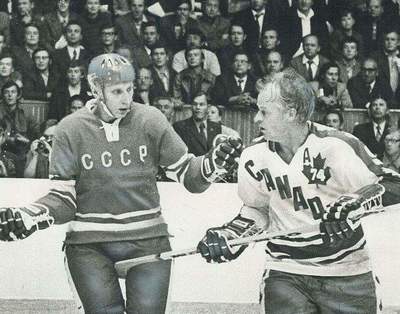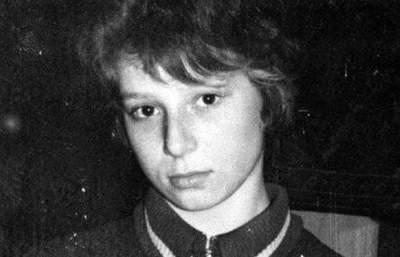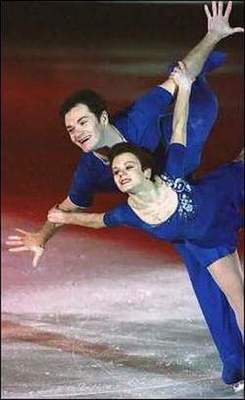The main riddle of the Russian language
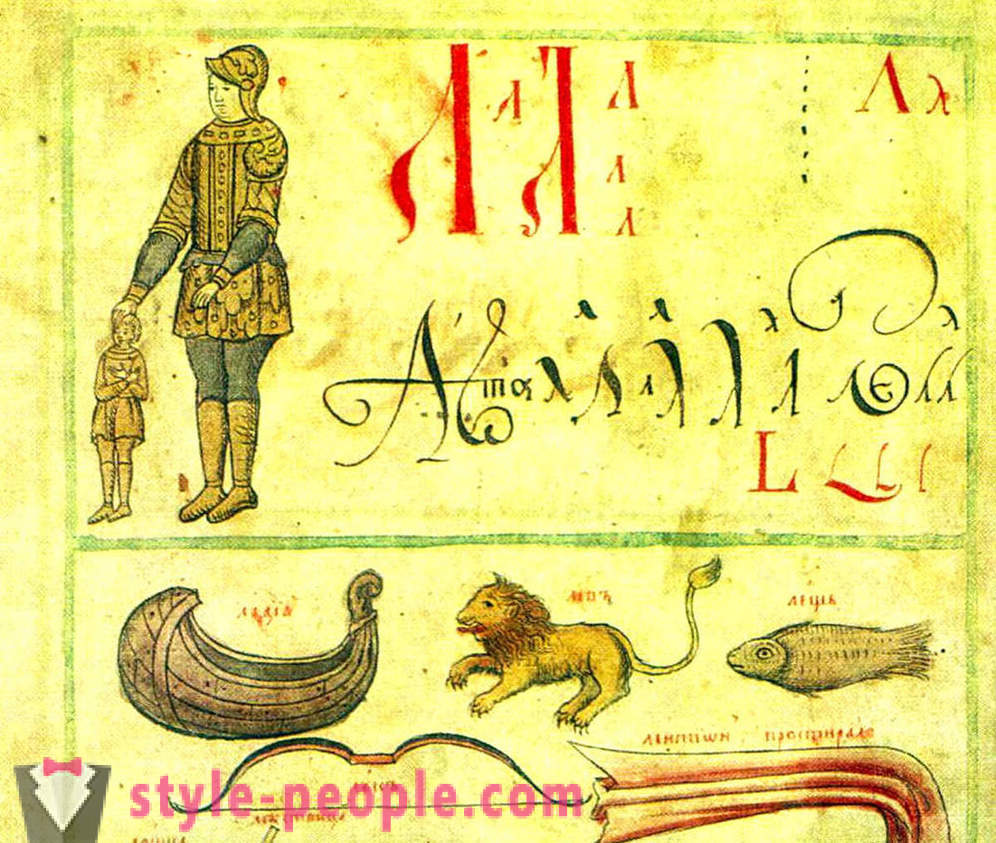
Russian language - one of the toughest. And this is connected not only with the vocabulary and syntax, but also with its history. Even for us, native speakers, is still a great deal in their native language is unclear and mysterious.
Message
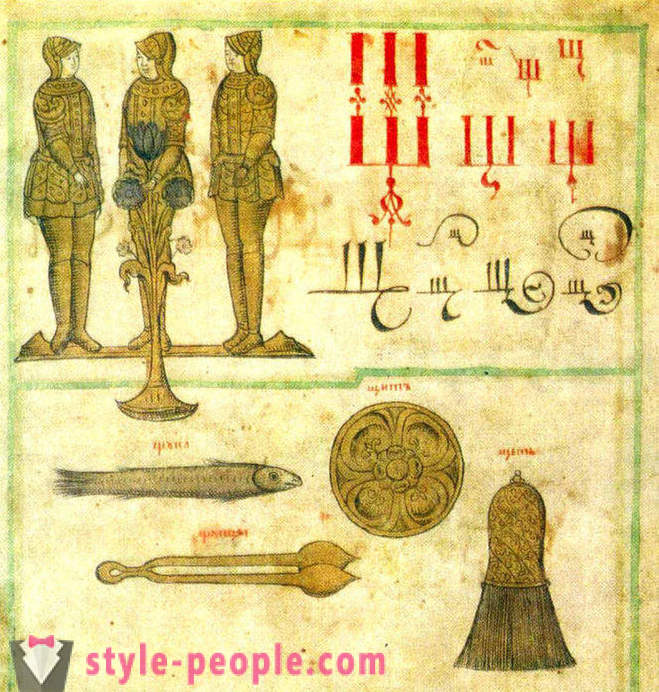
Linguists repeatedly noted akrofonichesky principle of the ancient Russian alphabet and even saw it as a hidden "message to the Slavs". Each of the Cyrillic letters has a name, and if you read these names in alphabetical order, would be: "Az Buki Veda. The verb good Este. Live exceedingly, land, and others like kako people, think nash on quarters. Rtsy word firmly - uk frt her. Tzu, worms, shta yus Yati ra ". One of the variants of the translation of this text is as follows: "I know the letters: the letter is a treasure. Work hard, humans, as befits intelligent people - comprehend the universe! Carry the word with conviction: knowledge - the gift of God! Dare to delve, to grasp things light! ".
What language is closer to the Slavic "ancestor"?
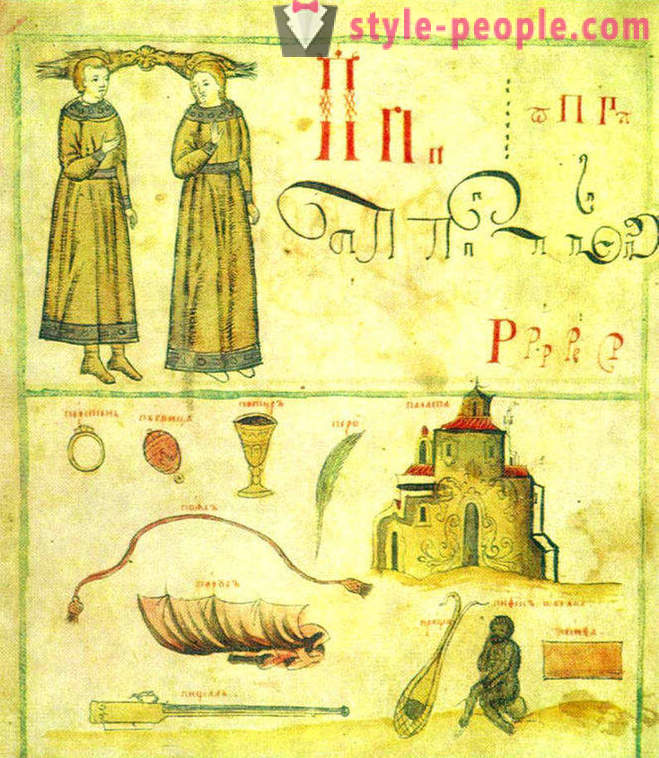
Between the patriotic citizens of the Slavic states have long been disputed: which language is closer to the native Slavic? Where did went differences between dialects in Eastern Russia (ie the current central Russia..), The South (today's Ukraine) and Western (now - Belarus)?
The fact that the different elements involved in the genesis of the national languages of these countries. In Russia, in addition to the Slavs, Finno-Ugric tribes, the Balts. Frequented here nomads from the southern steppes. Tatar-Mongol invaders not only robbed and ruined Russia, but also left behind a lot of linguistic borrowing.
Swedes, Germans, Poles - European neighbors, also enriched the Russian language with new words. The fact that a large part of present Belarus has historically been ruled by Poland and South Russia constantly exposed to attacks of the nomads, could not be reflected in the local languages. As they say, Who lead. But do not be too upset. The fact that our language is now so far removed from its progenitor - it is not an accident and not the result of a Masonic conspiracy, but the result of hard work of many talented people who created the Russian literary language in the form in which it exists now. If it were not inspired by the reforms they would not have been with us the poetry of Pushkin, Tolstoy's prose, Chekhov's plays. Who created the language we speak today?
The first "letters of dismissal"
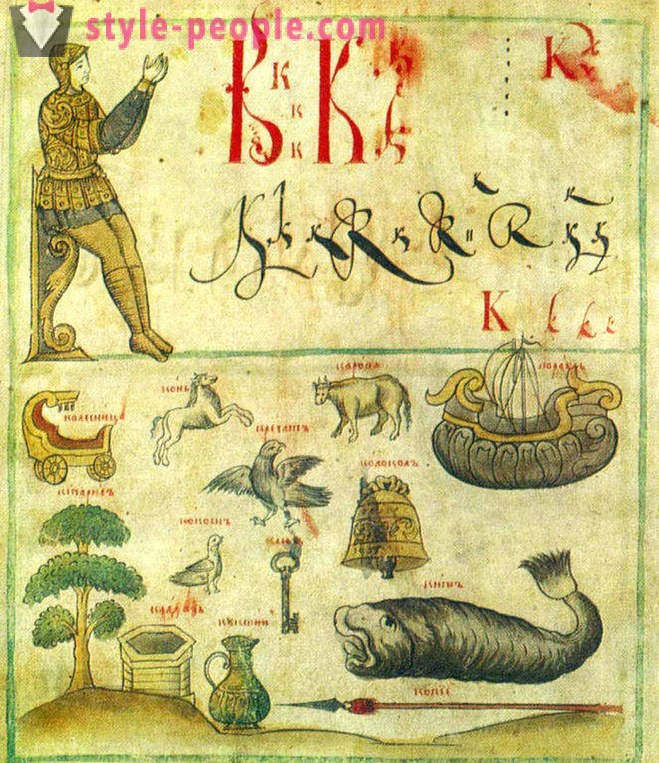
In the XVIII century, came to power, Peter I. He begins the transformation in all spheres of life, do not overlook the Russian language. But his reforms relate only to the outside, they do not penetrate into the very essence of language: its syntax, vocabulary, grammar.
Peter I simplify spelling, getting rid of the Greek letter Psi, and Omega Chi. These letters are not designated in the Russian language, no sounds, and their loss of language does not impoverished. Peter tried to get rid of even from a number of Russian alphabet, "Earth", "Izhitsa", "Firth", and put the accent marks, but under pressure from the clergy, these letters had to be returned.
Alphabet reform made life easier not only to students of Peter's pores (lit. something had to teach less), but also printers, which no longer had to print extra characters, not pronounced in reading.
Lomonosov spoke about it this way: "When Peter the Great are not alone and boyar boyars, but also letters dropped off his wide coat and dressed in summer clothes."
What was in need of reform?
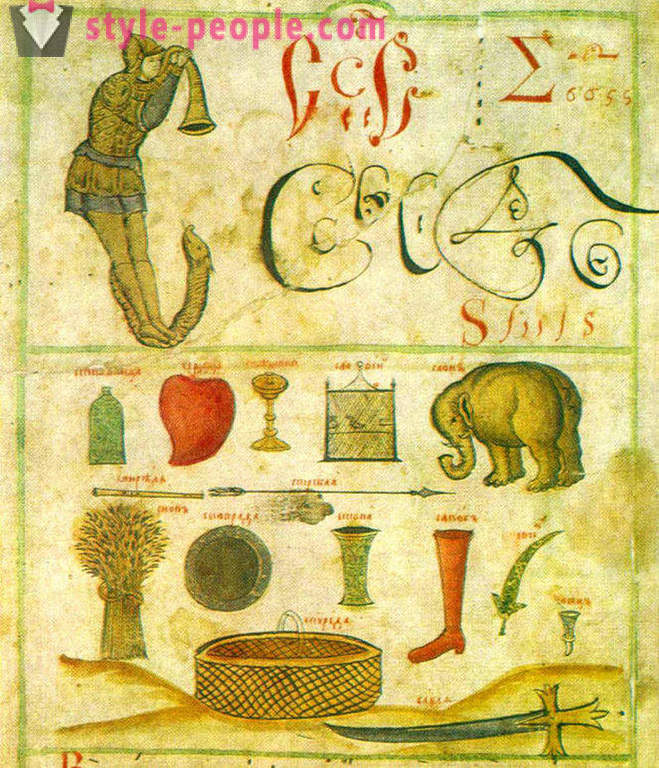
This reform takes place forces the writers and poets of the XVIII century: Trediakovsky, Lomonosov, Karamzin. They create a Russian literary language and "perpetuate the success of" his works. Before the Russian language, because of the constant contact with Western Europe, was in a chaotic state. Vernacular forms coexisted in him with the book, borrowed from the German, French, Latin, were used along with the Russian counterparts. Trediakovskii alters the principle of Russian poetry, adopting and adapting the European syllabic-tonic system - based on the regular alternation of stressed and unstressed syllables.
Lomonosov all the words of the Russian language divides into three groups: The first group rarely used, especially in the spoken language, but understandable literate people, "opens the", "I cry." The second - a word common to Russian and Church Slavonic language: "hand", "now", "honor". And the third group he included the words, which is unique in the church books, which are words Russian is not native Slavic "say", "stream", "only".
Thus, Lomonosov identifies three "calm", each of which was used in certain literary genres: high style suited to odes and heroic poems, average calmness written dramas, prose - in general, all the works where you need to draw a live speech. Low calm was used in comedies, satires, epigrams.
Finally, Karamzin enriches Russian language neologisms, he abandons the Church Slavonic language, the syntax is approaching in his works to a "light" to the French. It Karamzin we must, for example, the appearance of the words "love" or "pavement".
The difficult letter "E"
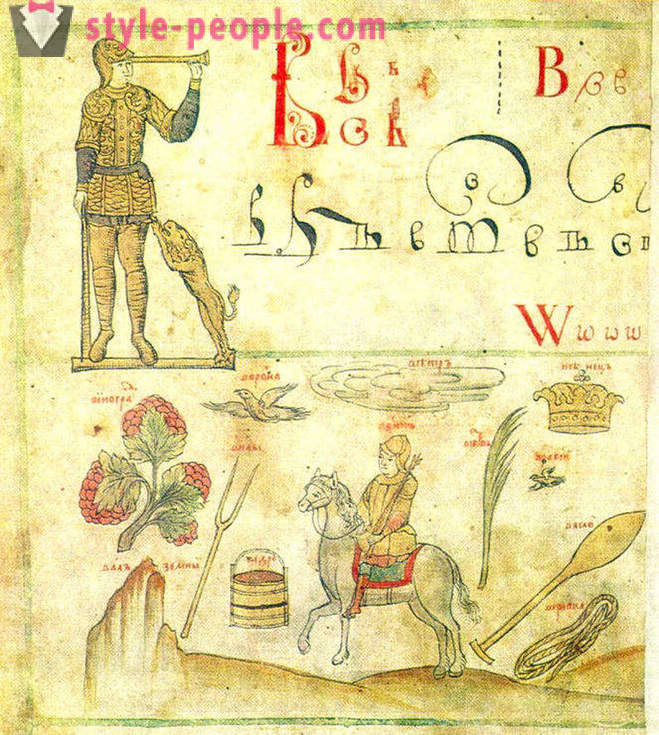
Karamzin was one of the most ardent "fans" of the letter "e", but he was not its inventor. In 1783, there was one of the first meetings of the Academy of Russian Literature. Its founder was Catherine Dashkova. Together with well-known writers of his time: Derzhavin and Fonvizin, Princess discussing the project Slavic-Russian dictionary. For convenience, Ekaterina Romanova proposed to replace the sound symbol "io" one letter "e". Innovation was approved by the general meeting of the Academy, an innovative idea backed Derzhavin Dashkova, who began to use the "e" in his works. It was he who was the first to use a new letter in the correspondence, as well as the first printed with the name "e": Potomkin. At the same time, Ivan Dmitriev published the book "And my trinkets" printed in it all the necessary points. Finally, the widespread use it has received since appeared in a poetic collection of Karamzin.
They were among the new characters and enemies. Education Minister Alexander Shishkov, as they say, vigorously leafed through the many volumes of his library and his own black out two dots above the letter. too, were many conservatives among writers. Marina Tsvetaeva, for example, essentially written by the "o" word "devil", and Andrei Bely, for the same reasons, "Zsolt".
In the letter printing houses also do not like, in fact because of it had to spend the excess paint. In pre-revolutionary Primer her banished to the end of the alphabet, one company with the dying, "Izhitsa" and "fitoy". And today its place - in the corner of the keyboard. But not always to the letter "e" are treated with such disdain - Ulyanovsk her even a monument.
Mystery "Izhitsa"
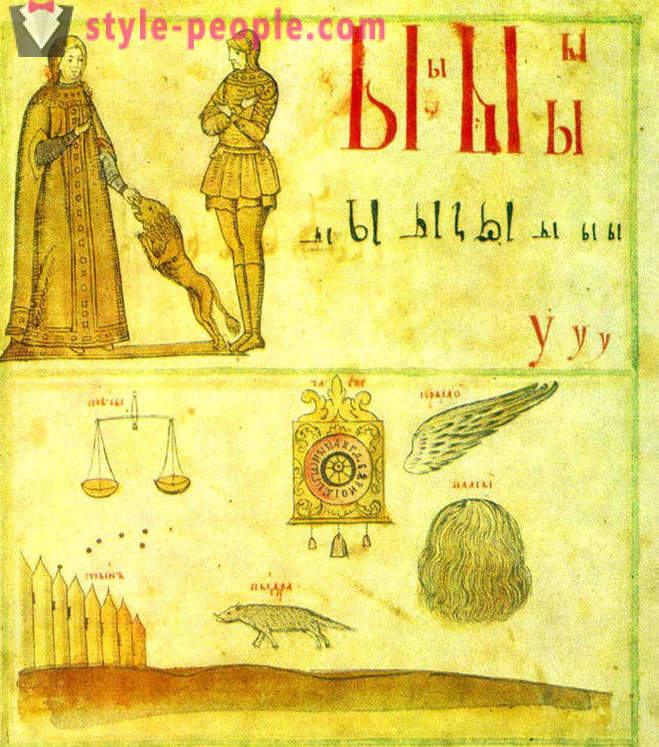
In the famous decree Lunacharskogo 1918 on changes in the Russian language there is no mention of the letter V ( "izhitsa"), which was the last letter of the alphabet in the pre-revolutionary. By the time the reform is extremely rare, and it can be found mostly only in religious texts. In civil language "izhitsa" is actually used only in the word "ointment". The tacit refusal by the Bolsheviks "Izhitsa" many saw a sign: the Soviet power, as it were refused by one of the seven sacraments - Confirmation, through which the Orthodox are fed gifts of the Holy Spirit, designed to strengthen it in the spiritual life.
Curiously, the undocumented removal "Izhitsa", the last letter in the alphabet, and the official liquidation of the penultimate - "feats" have made the final letter of the alphabet - the "I". Intellectuals saw this as yet another evil intention of the new authorities, who deliberately sacrificed two letters to deliver to the end of the letter ', which expresses the human personality, individuality.
The mystery of Russian mat
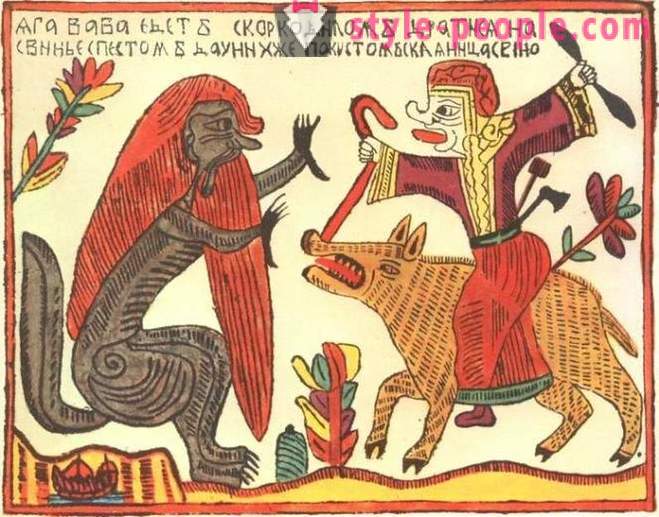
In practice, the whole XX century was dominated by a version that the words which we call-format, hit the Russian language from the Mongol-Tatars. However, this is misleading. Swearing is found already in the Novgorod birch bark, dating from the XI century: that is, long before the birth of Genghis Khan. The very concept of "mate" rather late. In Russia, for centuries it was called "barking obscene". Initially, abusive language included only the use of the word "mother" in the vulgar, sexual context. The words of designating genitals, which we today refer to the mat, did not relate to "barking obscene".
There are dozens of versions of the mat function. Some scientists suggest that swearing appeared at the turn of the transition of society from matriarchy to patriarchy and originally meant the authoritative statement of a man who, having ritual intercourse with the "mother" kind of, publicly announced this tribesmen. There is also a hypothesis that the "foul language" was magical, and the protective function called "posim language". In Slavic (and Indo-European in general) dogs traditionally considered animal "beyond the grave" of the world and served as a goddess of death Morena. There is another word that is today unjustly attributed to curses. In order to self-censorship, denoted by "a word with the letter" B ". This token is quietly existed in the Russian language elements (it can even be found in ecclesiastical texts and official state charters), having a value of "fornication," "deception", "misleading", "heresy", "error". The people are often the word is used the lewd women. Perhaps, at the time of Anna Ivanovna the word began to be used with greater frequency, and probably in the latter context, because this is the Empress imposed a ban on it.
































